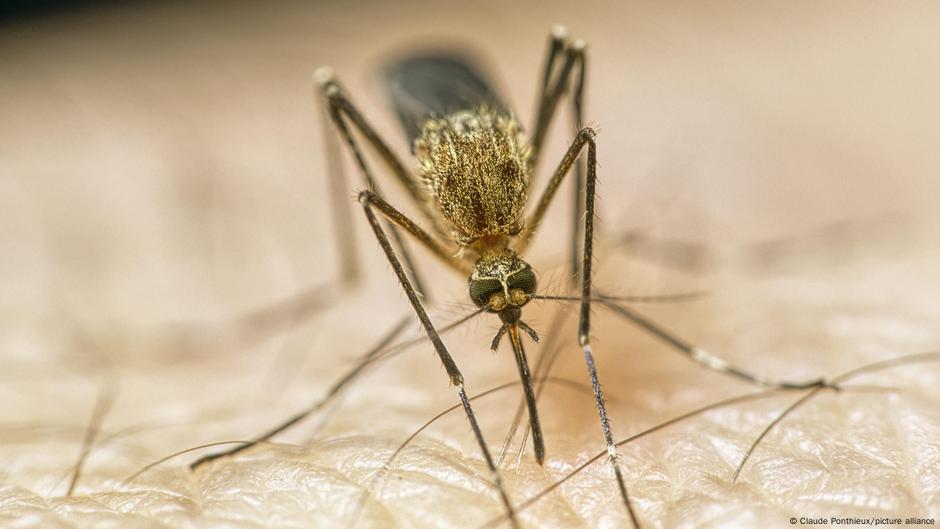From heart attacks and heat exhaustion to mental health problems and the spread of tropical diseases, the climate crisis is putting more and more people at risk around the world, according to a report published today.
The 128 leading scientists behind the Lancet Countdown report have warned that the consequences of rising global temperatures have never been more dangerous for human health.
“This year’s health stocktake paints a bleak and undeniable picture of the devastating health harms reaching all corners of the world,” said Marina Romanello, executive director of Lancet Countdown, an independent international research collaboration at University College London.
According to the analysis, heat-related deaths have increased by 23% since the 1990s, with more than half a million people losing their lives every year due to rising temperatures. Wildfire smoke was linked to a record 154,000 deaths in 2024, while air pollution from the burning of fossil fuels kills 2.5 million people every year.
Health risks increased last year
“We are seeing millions of deaths every year that are occurring unnecessarily because of our continued fossil fuel dependence, because our delay in mitigating climate change and our delay in adapting to climate change cannot be avoided,” Romanello said.
The Lancet Countdown report is considered a well-known indicator of the scientific relationship between health and global warming. These are becoming more apparent as climate change caused by the burning of coal, oil and gas continues to wreak havoc across the planet.
Last year was the hottest on record and saw a surge in CO2 levels in the atmosphere to new heightsThis resulted in the average person experiencing a record 16 additional health-threatening hot days due to climate change. This increased to an average of 20 additional heat wave days for the most vulnerable groups of society, such as infants and people over the age of 65.
According to the report, 13 of the 20 indicators reflecting human health risks have increased significantly over the past year.
The most worrying aspect, Romanello said, is that almost all the indicators are moving in the wrong direction.
Health and economic costs
Climate change is increasing extreme weather events that are becoming more frequent and intense around the world.
Heat waves – the deadliest form of extreme weather – can overheat the body, put pressure on vital organs and make it difficult to sleep. Heavy floods, such as those seen in Pakistan this year, can lead to contaminated drinking water and the spread of infection, while drought is increasing malnutrition and hunger as crops are ruined. Smoke from wildfires – which could burn an area larger than India in 2024 – harms lungs, hearts and even babies in the womb.
Following weather-related disasters, disrupted power and damaged infrastructure can also hinder access to medical care and supplies. According to Romanello, most people affected by extreme weather around the world do not have health insurance, making them even more vulnerable to health risks.
These risks are not only costing human lives, but they also have an economic impact.
Water or food shortages and appalling sanitation conditions following disasters cost hundreds of billions of US dollars annually. Extreme heat alone is projected to cost more than US$1 trillion in 2024 – about 1% of global economic output – due to labor losses from illness and absenteeism.
Dengue and tropical diseases are spreading
Mosquitoes, ticks and sand flies – some of which spread deadly infectious diseases – are spreading into more areas as temperatures rise.
Last week, mosquitoes were documented for the first time on the northern European island of Iceland, which researchers have linked to climate change. As warmer temperatures open up new habitats for insects, the number of people infected with dengue, malaria, leishmaniasis and other diseases is increasing around the world.
In 2024, there was a record number of dengue infections worldwide, with more than 7.6 million cases. “We know that climate change is driving this spread, at least to some extent,” says Romanello.
Even though not all of these infections are fatal, people who fall ill are often unable to work for weeks, which has major economic consequences.
According to the report, the global average transmissibility of dengue has increased by 49% since the 1950s.
Mental health also affected
The risk of mental illness is also increasing due to climate change.
When someone experiences an extreme weather event like a wildfire, hurricane, monsoon, typhoon or extreme flood, it can lead to post-traumatic stress disorder, said Jenny Miller, executive director of the Global Climate and Health Alliance, a US non-governmental organization.
For example, poor harvests due to drought, water scarcity or loss of livelihood can cause anxiety and directly or indirectly lead to mental health problems. According to reports, this problem is further aggravated by lack of sleep due to extremely hot nights.
Preventing further disease and death
The report’s authors call for three key measures to mitigate the health consequences of the climate crisis.
First, renewable energy must be expanded to curb rising global temperatures. According to Romanello, clean energy, which has grown rapidly in recent years, has helped reduce air pollution and prevent more than 160,000 deaths between 2010-2022.
Climate change adaptation measures, such as making residential buildings and public infrastructure suitable for extreme weather conditions, must now also be intensified. And finally, scientists say global health care systems urgently need to adapt and be equipped to face the additional challenges presented by climate change.
This article was originally written in German.





Leave a Reply